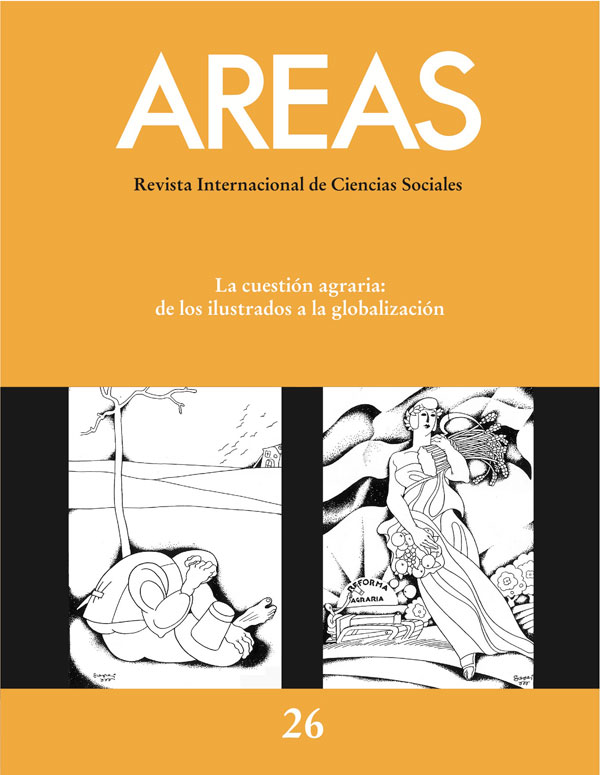The agrarian question in Spain: From Canalejas to Vázquez Humasqué
Abstract
The studies about agrarian reform have highlighted more in the role of huge landowners and the polemic during the political and parliamentarian discussion than in the analysis of affectivity of the solutions take into account before 1931. Five points of view with its authors are examined. First we have the point of view of Canalejas. He, from the government side, augmented again the huge landownership and appointed the state interventionist as a consubstantial matter and no as anomaly of liberal system. In the second point of view we have some professionals and a group of economist fellow-scholars of Flores de Lemus who issued an agrarian economics survey in 1913. In the section three the first law plan of regulation of the land rent of F. Villalobos is analyzed. In this the ownership of the land is viewed as illegitimate source of rent. This posture has been a constant of agrarian reformist in Spain and others countries. In the fourth place, we have the look of the forest engineers, who saw the land as nature. Finally, we describe the process of parcel out the land as most useful type of reform that was practiced during the Second Republic.Downloads
Download data is not yet available.
Metrics
Views/Downloads
-
Abstract540
-
PDF (Español (España))195
Robledo, R. (2007). The agrarian question in Spain: From Canalejas to Vázquez Humasqué. Areas. International Social Science Journal, (26), 95–113. Retrieved from https://revistas.um.es/areas/article/view/118531
Artículos
The published works by this Journal are subject to the following terms:
1. The Publication Service of the University of Murcia (the Editor) owns the copyright of its publications. It promotes and allows its use under the indicated licence in Section 2.
© Servicio de Publicaciones, Universidad de Murcia, 2011
2. Papers are digitally published under the licence Creative Commons Reconocimiento-NoComercial-SinObraDerivada 3.0 España (legal text). They can be copied, used, disseminated, transferred and publically presented if: i) the author is quoted, as well as the original source of publication (Journal, editorial and URL); ii) they are not used for commercial purposes; iii) the licence of use is mentioned.
3. Auto-file Conditions. It is allowed and authors are encouraged to digitally disseminate their pre-print versions (versions prior to review) and/or post-print (reviewed version accepted for its publication) since it promotes its early diffusion and the corresponding increase of quotes and scope within the academic community. RoMEO Colour: green.


